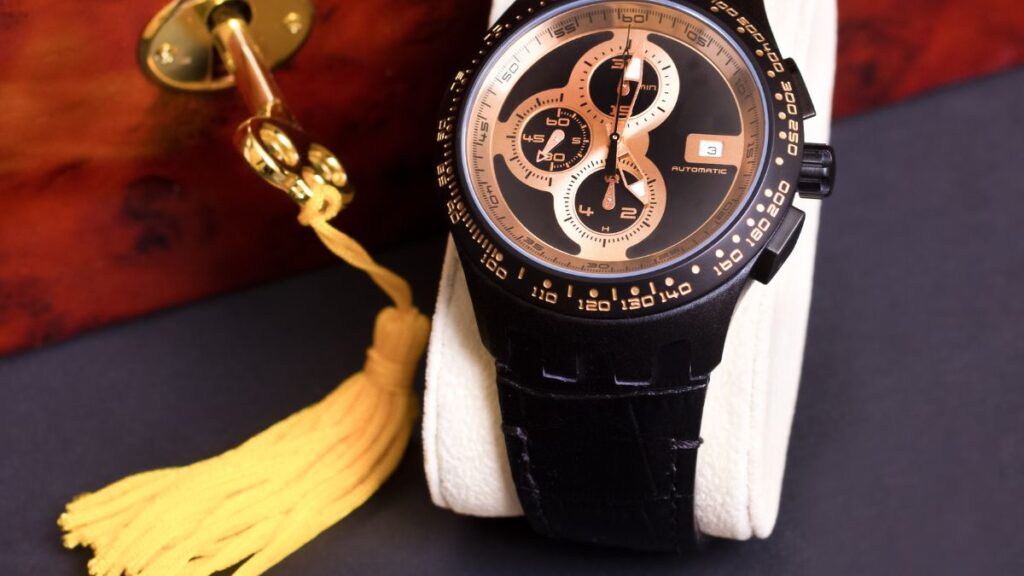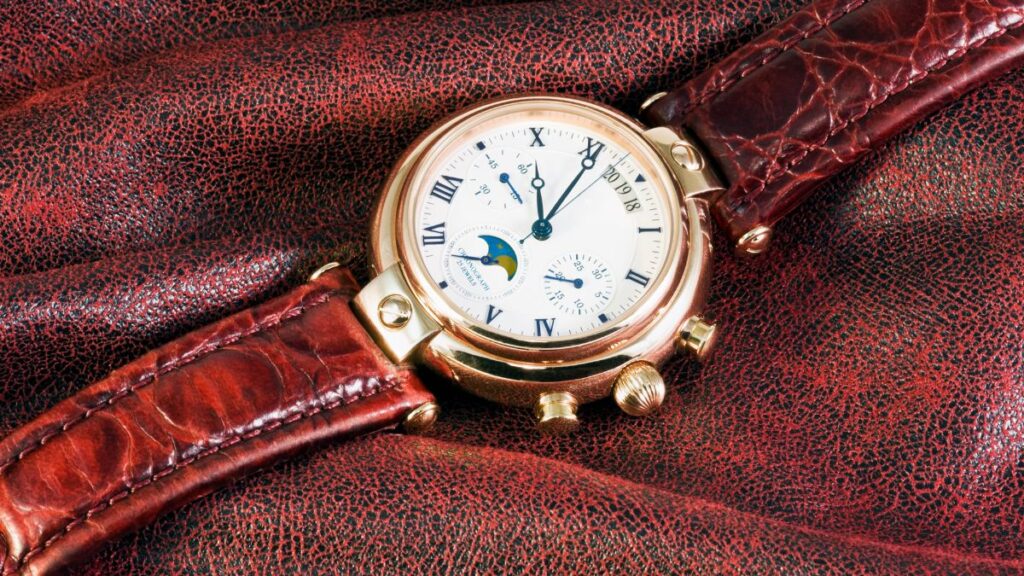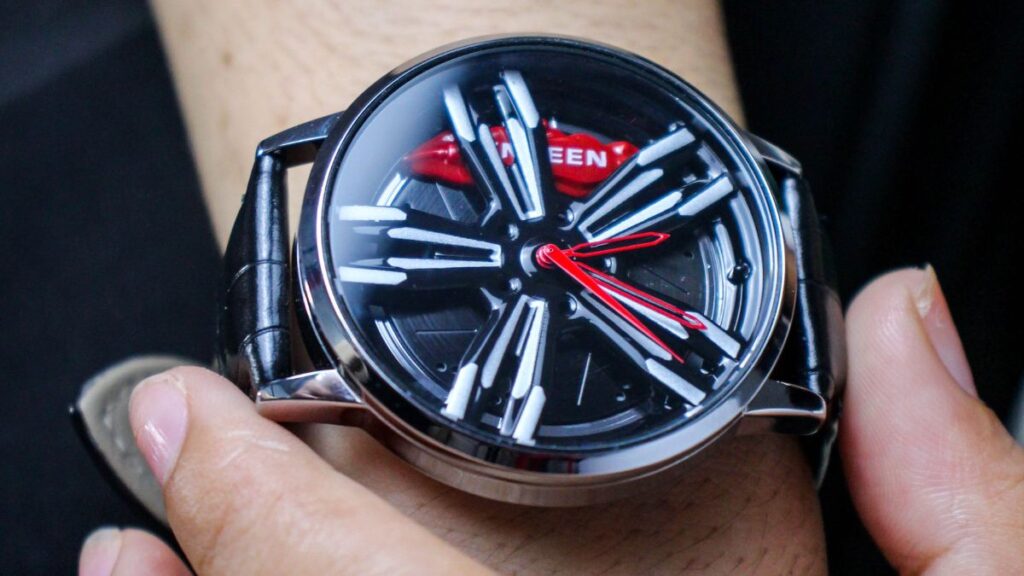Introduction
Men watches have transcended their original purpose of merely telling time. Today, they are symbols of style, sophistication, and status. For men a watch is more than just an accessory; it’s a statement. This article explores the timeless allure of men watches and helps you find the perfect match for your wrist.

The Evolution of Men Watches
Watches have a rich history that dates back to the 16th century. Initially, they were large and cumbersome, worn as pendants or carried in pockets Men Watches. It wasn’t until the early 20th century that wristwatches became popular among men, thanks to their practicality in warfare. Over the decades, watches have evolved from essential tools to luxury items, Men Watches reflecting technological advancements and changing fashion trends.
The Appeal of Mechanical Watches
Mechanical watches, driven by intricate gears and springs, are celebrated for their craftsmanship and engineering marvel. Unlike their quartz counterparts, which rely on batteries, mechanical watches require winding. This process, although considered a chore by some, is cherished by enthusiasts for its ritualistic appeal. The smooth, sweeping motion of the second hand in a mechanical watch is a testament to its complex inner workings Men Watches.
Quartz Watches: Precision and Affordability
Introduced in the 1960s, quartz Men watches revolutionized the industry with their unparalleled accuracy and affordability. Powered by a tiny battery, these watches use a quartz crystal Men Watches to regulate timekeeping. The result is a timepiece that is not only precise but also low-maintenance. Quartz watches cater to those who prioritize functionality and cost-effectiveness without compromising on style.

The Rise of Smartwatches
In recent years, smart Men watches have gained immense popularity, blending technology with traditional timekeeping. These digital Men Watches devices offer a plethora of features, from fitness tracking to smartphone notifications, making them indispensable in the modern era. While purists may argue that smartwatches lack the soul of mechanical or quartz watches, their convenience and versatility cannot be denied.
Choosing the Right Watch for Your Lifestyle
Selecting the perfect watch involves considering your lifestyle and personal preferences. Are you an adventurer who needs a rugged, water-resistant watch? Or perhaps a business professional looking for a sleek, elegant timepiece? Understanding your needs will help narrow down the options, ensuring your watch complements your daily activities Men Watches and enhances your overall look.
The Importance of Watch Materials
The materials used in a watch significantly impact its durability, weight, and appearance. Stainless steel is a popular choice for its strength and resistance to corrosion, while titanium offers a lightweight alternative. Precious metals like gold and platinum exude luxury but come with a heftier price tag. Additionally, watch straps can range from leather and metal to rubber and fabric, each offering a distinct look and feel.
Iconic Watch Brands
Certain watch brands have established themselves as icons in the industry, known for their exceptional quality and timeless designs. Rolex, for instance, is synonymous with prestige and reliability. Omega is celebrated for its association with space exploration and James Bond. Patek Philippe and Audemars Piguet are revered for their intricate complications and heritage. Exploring these brands can provide insight into the legacy and innovation behind each timepiece.
Watch Complications: Beyond Basic Timekeeping
A watch complication refers to any feature beyond the simple display of hours, minutes, and seconds. Common complications include date displays, chronographs, and dual time zones. More complex complications, such as perpetual calendars and minute repeaters, showcase the pinnacle of watchmaking artistry. Understanding these features can help you appreciate the intricacies of your watch and select one that aligns with your interests.

The Role of Watch Movements
The movement, or caliber, is the heart of a watch, responsible for its timekeeping accuracy. Movements are categorized into three types: manual, automatic, and quartz. Manual movements require regular winding, while automatic movements harness the wearer’s motion to wind the mainspring. Quartz movements, as previously mentioned, rely on batteries. Each type of movement has its advantages and nuances, influencing the watch’s performance and maintenance requirements.
Maintaining Your Watch
Proper maintenance is crucial to ensure your watch remains in optimal condition. Regular servicing, typically every 3-5 years for mechanical watches, helps prevent wear and tear. Quartz watches require battery replacements every few years. Additionally, storing your watch in a safe, dry place and avoiding exposure to extreme temperatures and magnetic fields can prolong its lifespan. Investing in a quality watch box or winder is also advisable for those with multiple timepieces.
Conclusion
A men watch is more than just a tool for telling time; it is an expression of individuality and taste. Whether you prefer the mechanical marvels of traditional watchmaking, the precision of quartz, or the technological prowess of smartwatches, there is a perfect watch waiting for you. By understanding the different types, materials, brands, and features, you can find a watch that not only complements your lifestyle but also stands the test of time.

FAQs
1. What is the difference between a mechanical and a quartz watch?
Mechanical watches are powered by intricate gears and springs and require winding, either manually or automatically. Quartz watches use a battery and a quartz crystal for timekeeping, offering greater accuracy and less maintenance.
2. How often should I service my mechanical watch?
It is recommended to service a mechanical watch every 3-5 years to ensure it remains in good working condition and to prevent wear and tear.
3. Are smartwatches as durable as traditional watches?
Smartwatches are designed to be durable, but their lifespan can be shorter due to battery degradation and evolving technology. Traditional mechanical and quartz watches can last for decades with proper care.
4. What are watch complications?
Watch complications are features beyond basic timekeeping, such as date displays, chronographs, and dual time zones. More complex complications include perpetual calendars and minute repeaters.
5. Which watch materials are best for everyday wear?
Stainless steel and titanium are excellent choices for everyday wear due to their durability and resistance to corrosion. Leather straps offer comfort and a classic look, while rubber and fabric straps provide versatility for active lifestyles.










